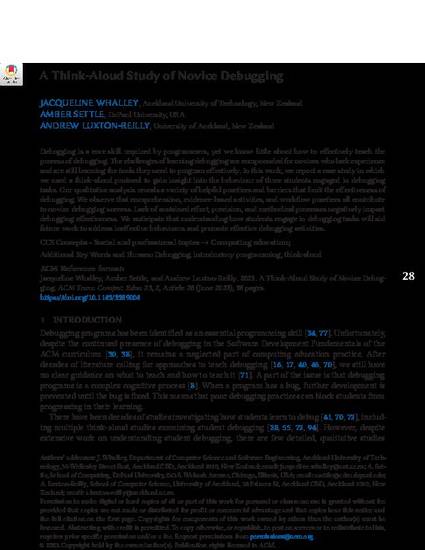
Article
A Think-Aloud Study of Novice Debugging
ACM Transactions on Computing Education
(2023)
Abstract
Debugging is a core skill required by programmers, yet we know little about how to effectively teach the process of debugging. The challenges of learning debugging are compounded for novices who lack experience and are still learning the tools they need to program effectively. In this work, we report a case study in which we used a think-aloud protocol to gain insight into the behaviour of three students engaged in debugging tasks. Our qualitative analysis reveals a variety of helpful practices and barriers that limit the effectiveness of debugging. We observe that comprehension, evidence-based activities, and workflow practices all contribute to novice debugging success. Lack of sustained effort, precision, and methodical processes negatively impact debugging effectiveness. We anticipate that understanding how students engage in debugging tasks will aid future work to address ineffective behaviours and promote effective debugging activities.
Keywords
- Debugging,
- introductory programming,
- think-aloud
Disciplines
Publication Date
June, 2023
DOI
10.1145/3589004
Citation Information
Jacqueline Whalley, Amber Settle, and Andrew Luxton-Reilly. 2023. A Think-Aloud Study of Novice Debugging. ACM Transactions on Computing Education, 23:2, Article 28 (June 2023), 38 pages. https://doi.org/10.1145/3589004
